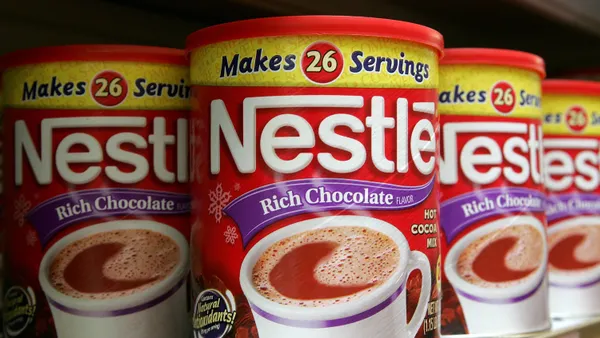Dive Brief:
- President Donald Trump’s shifting tariff policies have added substantial uncertainty to the merger-and-acquisition landscape, making financial forecasts and valuations much more challenging, according to a report by global law firm Mayer Brown.
- The current environment “significantly magnifies the importance of robust trade due diligence as part of any M&A transaction,” according to the report released Tuesday.
- “I think now more than ever the legal team and the finance team need to be on the same page as they weigh these risks and take them into account in the valuation process,” Peter Wolf, a partner at Mayer Brown and one of the report’s authors, said in an interview. “You can’t just rely on the historical financial statements of a company, because those simply don’t reflect the business being conducted in today’s tariff environment.”
Dive Insight:
The current uncertainty mirrors the instability dealmakers experienced during and shortly after the COVID-19 pandemic, when earnout provisions in transactions became increasingly common to bridge valuation gaps, according to the report. An earnout is a payment the seller receives from the buyer only when specific performance targets are met.
“Without clearly defined accounting standards and metrics, even minor classification differences in tariff costs can determine whether earnout targets are achieved, potentially triggering significant financial consequences and post-closing disputes,” the report said.
U.S. M&A activity showed a mixed picture in March, with large transactions helping to drive an increase in overall deal value over the year-earlier period, but volume falling amid continued economic and policy uncertainty, according to an Ernst & Young analysis.
“Mega-deals,” particularly in the technology and consumer product sectors, pushed the overall value of deals above $100 million to $217 billion, a 25% increase from the year-earlier period. But last month saw a total of 112 deals, a decline of 8.9% year-over-year.
“The coming months will be pivotal for M&A activity as market participants seek clarity and stability in an evolving regulatory environment,” the EY report said. “As such, we see a guarded approach towards M&A activity across most sectors.”
The U.S. has begun negotiations with several nations that on April 9 were granted a 90-day reprieve from high reciprocal tariffs, according to the White House. Baseline tariffs of 10% on goods from most U.S. trade partners remain in place, as do 145% duties on imports from China.
During a White House news event Tuesday, Trump signaled a further softening in his trade approach, saying the high tariffs his administration has imposed on Chinese goods will “come down substantially, but it won’t be zero.”
Because the administration’s position on tariffs is constantly evolving and many countries have threatened to impose retaliatory tariffs, due diligence in M&A dealmaking has become “extremely challenging and somewhat speculative,” according to the Mayer Brown report.
“Uncertainty is sort of the dealmaker’s worst enemy,” Wolf told CFO Dive. The current environment in particular “makes it extremely hard to properly evaluate the going-forward financials of a business with a global supply chain,” he added.
A dealmaker can bridge buyer-seller valuation gaps by tying part of the purchase price to an earnout or another type of contingent payment that hinges on the performance of the business, Wolf said.
“Earnouts often seem like a great solution to dealmakers, but the big risk is that they result in a lot of disputes between the parties over whether the earnouts were achieved,” he said. “The easiest way to avoid litigation is to clearly define how the earnout is going to be calculated.”















